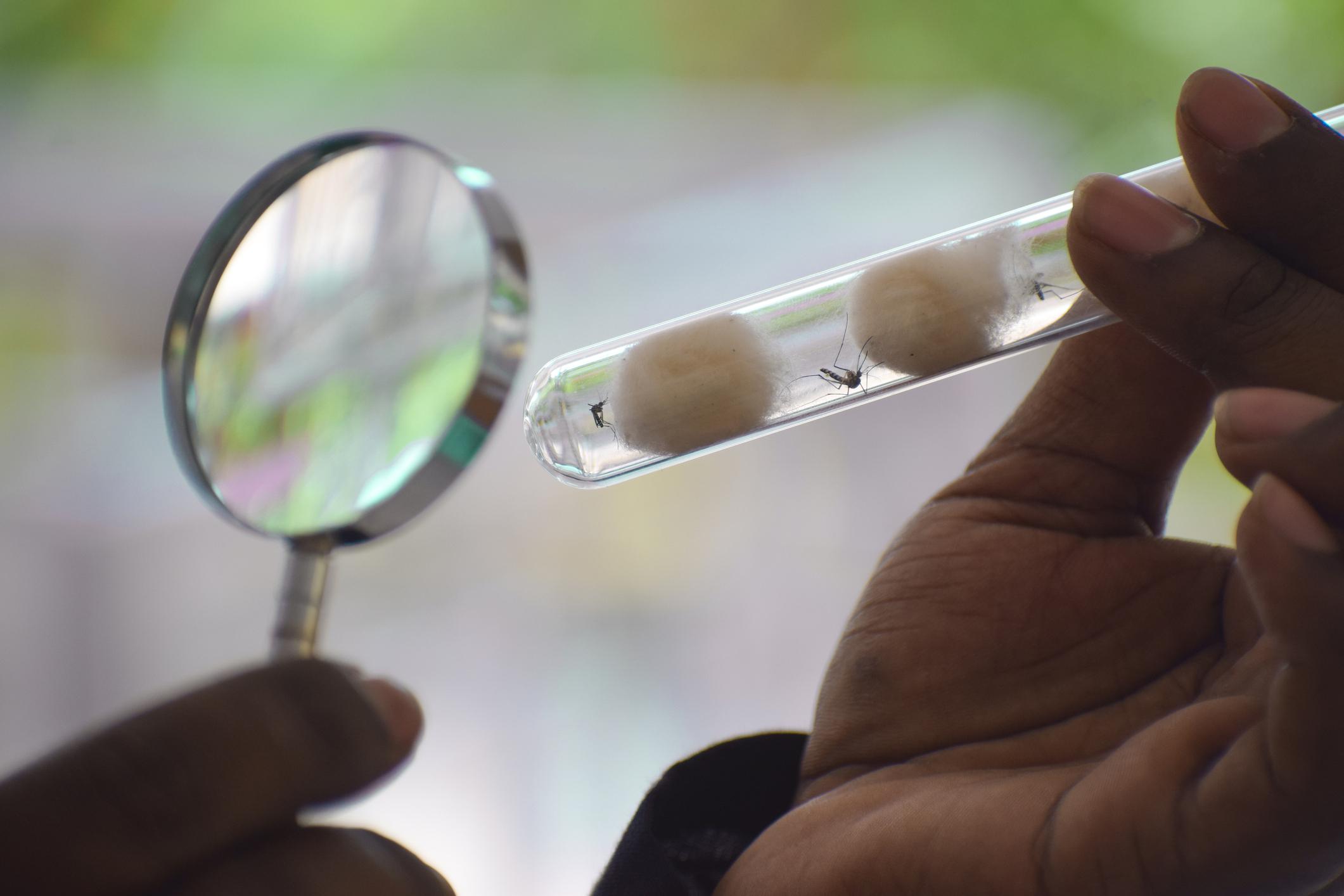What Are Genetically Modified Mosquitoes?
Posted by Mosquito Squad
March 26, 2024

Author: Emma Grace Crumbley, Entomologist
Mosquitoes are widely considered the world’s deadliest animal. According to the American Mosquito Control Association, over 1 million people die from diseases spread through mosquitoes every year, and hundreds of thousands of individuals suffer from symptoms ranging from mild to life-altering. Aedes aegypti mosquitoes alone are responsible for four major arboviral diseases: dengue, yellow fever, chikungunya, and Zika virus. In an effort to control mosquito populations, new research has focused on genetically modifying mosquitoes.
Genetically Modified Mosquitoes
Genetically modified (GM) mosquitoes are mosquitoes that have been reared in a laboratory with some alteration to their DNA that affects a part of their life cycle. These mosquitoes are then released into the wild to outcompete native mosquitoes for mates and decrease mosquito prevalence in their areas.
Two genes that are altered in GM mosquito DNA: a self-limiting gene and a fluorescent marker gene.
- The self-limiting gene prevents female mosquitoes from producing offspring that will survive to adulthood. Altered female mosquitoes still mate with males, which takes away potential mates from wild female mosquitoes. Eggs will remain laid, but larvae will not develop, and populations will decrease.
- The fluorescent marker gene helps researchers track the spread of GM mosquitoes in the wild. When mosquitoes are caught and brought back to the lab, this gene glows under fluorescent lighting.
GM mosquitoes have been successfully released and monitored in several areas worldwide. In the United States, the Environmental Protection Agency (EPA) has authorized the use of GM mosquitoes in only two states: Florida and Texas. These areas are monitoring GM mosquito presence and success rates at the local level.
Other Modified Mosquitoes
There are two other ways mosquitoes can be modified aside from genetically. Irradiated mosquitoes are reared in a laboratory and released to mate with wild mosquitoes, competing for reproductive material. This approach focuses on separating and sterilizing male mosquitoes. One benefit of this method is that male mosquitoes do not take a blood meal, so released males do not increase the population of biting mosquitoes during this intervention.
The other form of modification involves the introduction of Wolbachia, a bacteria found naturally in nearly 50% of insect species, excluding mosquitoes. In the lab, scientists introduce the Wolbachia bacteria to the mosquito genome and grow a modified population. Then, male mosquitoes with Wolbachia are released to mate with wild mosquitoes. If a modified male mates with a wild-type female, the eggs produced will not hatch.
Both of these methods, and GM mosquitoes are still in trials worldwide with various degrees of success. As government bodies, both federal, state, and local, approve the release of modified mosquitoes for localized trials, research will reveal how effective modified mosquitoes are at controlling overall mosquito populations.
Modify your Mosquito Control!
Mosquito season is officially here, and it’s time to consider your management plan. The Pros at Mosquito Squad are ready to help keep your lawn peaceful, not pest-full! Call us today for a free quote!
